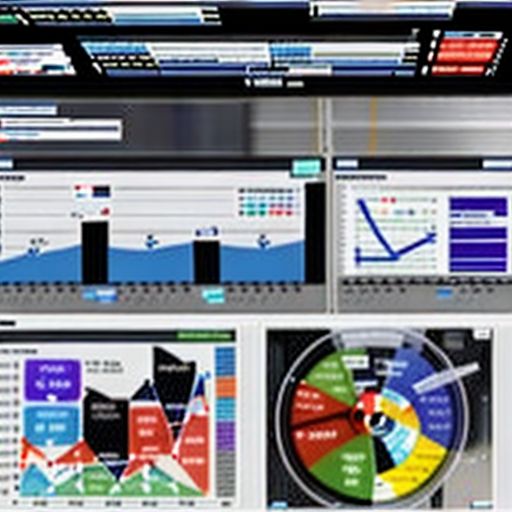Imagine this: Your ecommerce business is booming. Orders are pouring in, but managing inventory, tracking shipments, and handling customer data feels like you’re juggling flaming torches while riding a unicycle. Overwhelming, right? This is where the power of ERP in ecommerce comes in.
What is ERP in Ecommerce?
ERP stands for Enterprise Resource Planning. It’s a type of software that integrates all the core processes of a business, from inventory and supply chain management to financials, customer relationship management (CRM), and more.
Think of ERP as the central nervous system of your ecommerce operation. It connects every department and function, allowing for seamless data flow and streamlined processes.
Why is ERP Crucial for Ecommerce Businesses?
1. Enhanced Efficiency and Productivity
- Automated tasks: ERP automates repetitive tasks like order processing, inventory updates, and invoice generation, freeing your team to focus on strategic initiatives.
- Centralized data: No more data silos! ERP provides a single source of truth for all business information, improving accuracy and collaboration.
2. Improved Customer Experience
- Faster order fulfillment: Real-time inventory visibility ensures you can fulfill orders quickly and accurately.
- Personalized interactions: Integrated CRM functionality allows you to tailor marketing campaigns, provide personalized recommendations, and offer exceptional customer service.
3. Data-Driven Decision Making
- Real-time insights: ERP dashboards provide a comprehensive view of your business performance, enabling data-driven decision making.
- Inventory optimization: Advanced analytics help you forecast demand, optimize stock levels, and prevent stockouts or excess inventory.
erp.cungphuthe.com/wp-content/uploads/2024/07/erp-ecommerce-dashboard-66936c.jpg" alt="ERP Dashboard" width="512" height="512">ERP Dashboard
Key Features of Ecommerce ERP Systems
- Inventory Management: Real-time inventory tracking, automated reordering, and multi-warehouse management.
- Order Management: Streamlined order processing, automated shipping, and tracking.
- CRM: Customer data management, segmentation, and marketing automation.
- Financials: Integrated accounting, financial reporting, and analytics.
- Supply Chain Management: Vendor management, procurement, and logistics optimization.
FAQs about ERP in Ecommerce
1. What is the difference between ERP and ecommerce platforms?
Ecommerce platforms (like Shopify, Magento, etc.) focus on the front-end of your business—your online store. ERP systems handle the back-end operations—inventory, orders, financials, etc. Integrating the two creates a powerful synergy.
2. Do I need an ERP for my ecommerce business?
If you’re struggling with manual processes, data silos, or keeping up with growth, an ERP system can be a game-changer.
3. How much does an ERP system cost?
ERP costs vary widely depending on factors like the size of your business, features needed, and deployment model (cloud-based or on-premise).
Conclusion
In today’s competitive ecommerce landscape, implementing an ERP system is no longer a luxury; it’s a necessity for sustained growth and success. By streamlining operations, improving customer experiences, and empowering data-driven decisions, ERP helps ecommerce businesses reach their full potential.
Ready to explore the world of ERP solutions? Share your thoughts and questions in the comments below!
